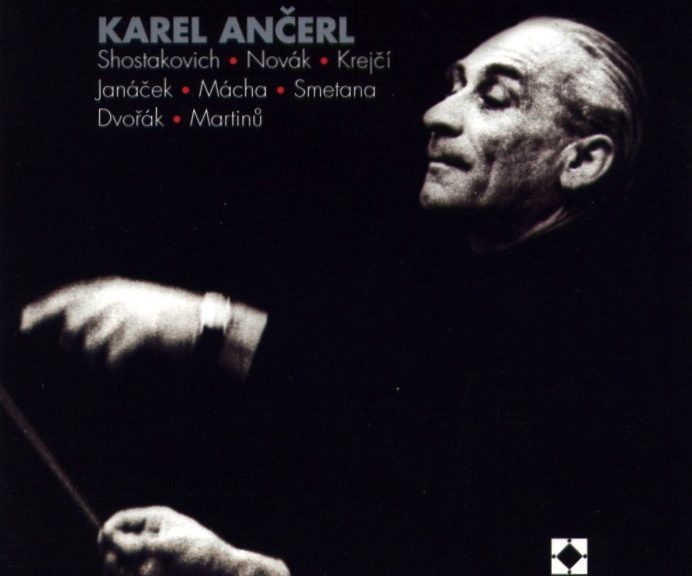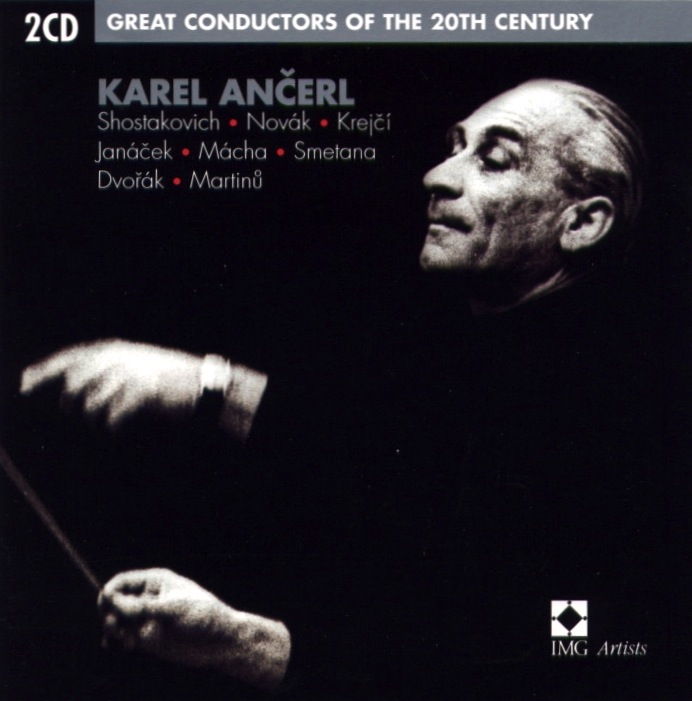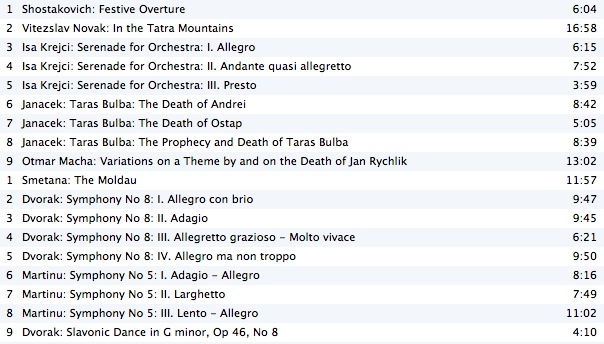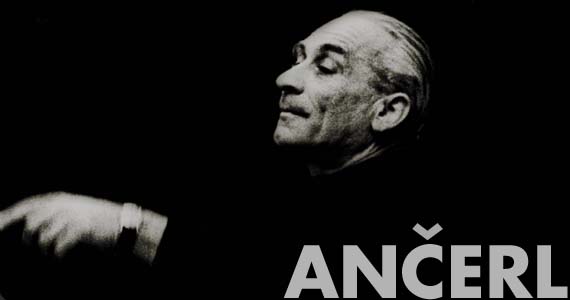
Great Conductors of the 20th Century – Karl Ancerl

Great Conductors of the 20th Century was a 2CD series from IMG Artists and EMI featuring famous conductors of the 20th century. As per the norm, the website has disappeared, so here is all the information [and more] that was included for this great series.
Recordings from Prague and Vienna never issued on CD before plus a stunning stereo Dvorák 8 caught live in 1970 with the Concertgebouw Orchestra.
Catalogue no: 7243 5 75091 2 1 (2CD)
CD1 [76:37]
Shostakovich: Festive Overture
Czech Philharmonic Orchestra; Rudolfinum, Prague; April 1964
Novák: In the Tatra Mountains
Czech Philharmonic Orchestra; Domovina, Prague; December 1950
Krejcí: Serenade for Orchestra
Czech Philharmonic Orchestra; Rudolfinum, Prague; October 1957
Janácek: Taras Bulba
Czech Philharmonic Orchestra; Rudolfinum, Prague; May 1961
Mácha: Variations on a Theme by and on the Death of Jan Rychlík
Czech Philharmonic Orchestra; Rudolfinum, Prague; June 1968
CD2 [78:58]
Smetana: The Moldau (Vltava)
Wiener Symphoniker; Musikverein, Vienna; February 1958
Dvorák: Symphony No.8
Concertgebouw Orchestra; Concertgebouw, Amsterdam (Live); January 1970
Martinu: Symphony No.5
Toronto Symphony Orchestra; Massey Hall, Toronto (Live); November 1971
Dvorák: Slavonic Dance, Op.46 No.8
Wiener Symphoniker; Musikverein, Vienna; November 1958
THE BIOGRAPHY – KAREL ANCERL (1908-73)
The name of Karel Ancerl is indelibly linked with the Czech Philharmonic, which he inherited from Talich and Kubelík in 1950. Born on 11 April 1908 in Tucapy, southern Bohemia, he attended the Prague Conservatory. After first directing a jazz orchestra, he found a job in Czech Radio, which offered him the chance of conducting its symphony orchestra, and he also enrolled in Talich’s master class. Through his regular appearances at ISCM festivals across Europe and at the pioneering concerts of ‘Prítomnost’ in Prague, Ancerl became known before the war as a conductor of contemporary music. The German occupation disrupted his career. He was dismissed from his post and, in 1942, incarcerated in the Terezín ghetto, where, despite the terrible conditions, he founded a string orchestra; he was the only member of his family to survive the Nazi death camps.
With remarkable resilience, Ancerl returned to Prague and in 1947 was appointed head of the radio orchestra. He became artistic director of the Czech Philharmonic three years later. With the political thaw following Stalin’s death, Ancerl was able to take his orchestra on tour to Western countries and by the mid-60s they had travelled worldwide to great acclaim. But in 1968, disillusioned and appalled by the Soviet-led invasion of his country, Ancerl decided to make his home in Canada, where he became music director of the Toronto Symphony. Despite his precarious state of health, a consequence of his wartime experiences, Ancerl guided the orchestra through four highly successful seasons. He died in Toronto on 3 July 1973 and, after the ‘Velvet Revolution’, his ashes were returned to Prague.
THE RECORDINGS
This compilation focuses on Ancerl as chief conductor of the Czech Philharmonic Orchestra (CD1), as a guest conductor of the Vienna Symphony and Concertgebouw Orchestras and as chief conductor of the Toronto Symphony Otchestra (CD2). Represented are a cross-section of established Czech composers associated with Ancerl’s career (Dvorák, Smetana, Martinu, Novák, and Janácek) and two contemporary works: Mácha’s Variations (Ancerl’s last recording with the Czech PO before leaving Czechoslovakia) and a delightful Serenade by Krejcí.
The recordings of Shostakovich (1964), Novák (Ancerl’s debut recording with the Czech PO in 1950), Krejcí (1957) and Mácha (1964) have never appeared on CD before. The Vienna recordings of Dvorák’s Slavonic Dance No.8 and Smetana’s Vltava (both from 1958) are also new to the CD catalogue. The compilation is completed by two live broadcasts: the Dvorák Symphony No.8 from Amsterdam (in 1970) and Martinu’s Symphony No.5 from Toronto (in 1971).
Track Listing:

Back To Great Conductors of the 20th Century


